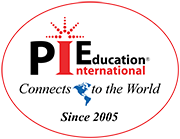Long Island University - Brooklyn
1 University Plaza, Brooklyn, New York, USA
Program Summary
Program Description
- Marriage and family therapists provide individual, couple, family, relational and group therapy. They assess, treat and implement change in the overall, long-term well-being of individuals, couples, families, and those in other relationships. The traditional emphasis on the individual is expanded to include consideration of the nature and roles of individuals in relation to others, particularly in the family system.
- Marriage and family therapy focuses not only on the individual patient—even if it is a single person seeking therapy—but on the context and relationships in which the person participates. All relationship contexts are considered, including the married or committed couple, family, school, work, social, community, and other relational systems.
- Marriage and family therapists treat a wide range of clinical problems including depression, marital problems, anxiety, nervous and mental disorders, as well as relationship, couple, family, and child-parent problems.
- Marriage and family therapy is often brief and solution-focused and it is designed to achieve specific therapeutic goals of individuals and families.
Academic Background
Minimum Level of Education Completed
4-Year Bachelor's Degree
Minimum GPA
63%
Minimum Language Test Scores
TOEFL
79
IELTS
6.5
PTE
58
Reading
10
Writing
10
Listening
10
Speaking
10
Duolingo
105
Program Intakes
September 2025
Open date
March 15, 2025
Submission deadline
July 1, 2025
January 2026
Open date
May 1, 2025
Submission deadline
November 1, 2025
Cost and Duration
Master's Degree
Program Level
2 year master's degree including a practicum
Program Length
$18378 USD
Cost of Living
$0 USD
Application fee
$25860 USD / First Year
Gross Tuition
Other Fees
Health Insurance Fee: $2454 per year
Full-Time University Fee: $2,034 per year
Books and Supplies Fee: $2040 per year
Study Destinations
© 2005-2025 PIE Academy Inc.


